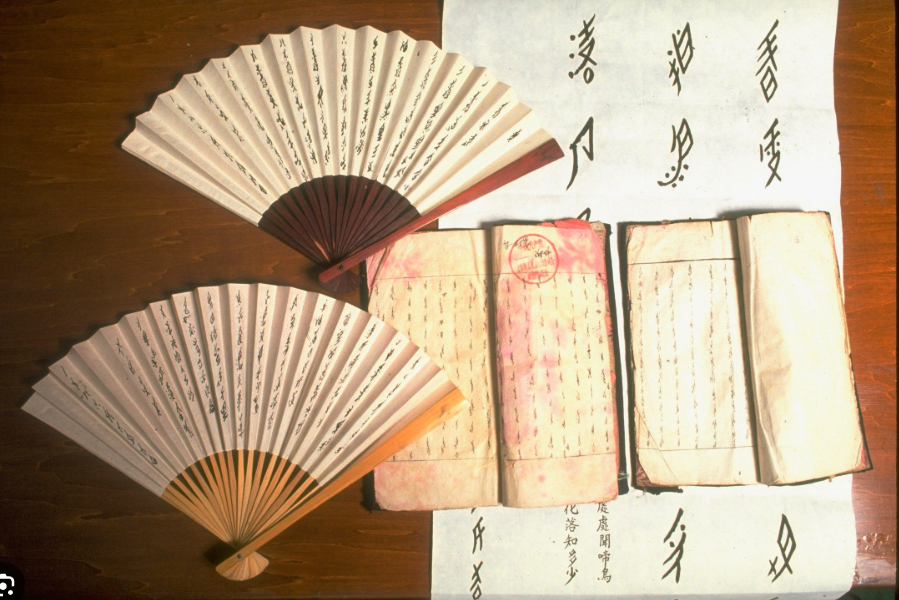The Impact of Nüshu, a Life-Changing Invention
- Chloe Bai
- Oct 28, 2025
- 2 min read

The brief origin and present of this intricate written language, created for and by the women of Jianyong County of Hunan; to declare feminism and express themselves freely without criticism.
Nüshu was created to communicate secretly among women, and is still a symbol of feminism today particularly with social media. However, it’s not just a random language, an isolated text. It was invented by women in a small village of Jiangyong, Hunan Province of Southern China, due to the injustice they received. It was a way for them to push through prejudice against women; and a way to educate themselves as well as cope with hardships.
In modern times, numerous women also find themselves to resonate with Nüshu deeply, this written language is very special, a major part of their lives and highly inspirational. “…modern challenges like censorship and online harassment. More than just a script, Nüshu was a lifeline—a space for healing, solidarity and resistance.” Linhan Zou said in her thesis. She wrote how Nüshu was a major part of her life.
“[It's] personal to me because it reflects my own journey of navigating silencing, cultural erasure and the struggle to claim space as a woman,” Zou said. “I am like the women of Jiangyong, who found ways to write their pain and resilience into reality, and I see my work as a continuation of their resistance in the modern world.” Zou wrote, “...many Nüshu texts contain poetic expressions of loss, hope and resilience, underscoring that each stroke was a deliberate act of resistance and an affirmation of shared experience.”
Just like how Nüshu connected greatly to Zou, it also inspired many women today. Nüshu can be prominently found throughout social platforms like Xiaohongshu. Certain female users may attempt to be exclusive, therefore discussion and communication is solely with women, where privacy is warmly welcomed.
“...women continue to harness language and communication tools…but also to establish boundaries, ensuring their stories and discussions remain a safe space for them,” according to the authors of Digital and Historical Exclusivity in Feminine Linguistics: From Nüshu to Xiaohongshu. “...potentially constraining broader societal impact and understanding.This exclusivity isn’t about suppressing others; it’s a response to the deep-seated biases that often lead to judgment, online harassment, and reinforcement of harmful stereotypes.”
The authors Ruyuan Wan and Lingbo Tong, highlighted that women on Xiaohongshu often use the “baby-feeding tag”, which has the same purpose as Nüshu. To persevere and show resilience against challenges. Nüshu became a method to gain equality, and prove that women are more than Confucian beliefs.




Comments